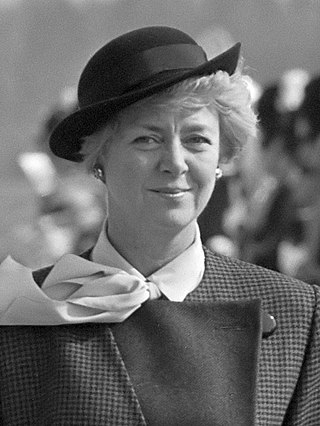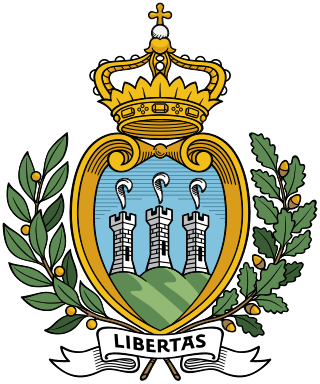| |||||
| Decades: | |||||
|---|---|---|---|---|---|
| See also: | |||||
Events in the year 1902 in Bulgaria .
| |||||
| Decades: | |||||
|---|---|---|---|---|---|
| See also: | |||||
Events in the year 1902 in Bulgaria .
| | This section needs expansion. You can help by adding to it. (August 2020) |

Early parliamentary elections were held in Austria on 24 November 2002, after internal divisions in the Freedom Party of Austria (FPÖ) culminating in the Knittelfeld Putsch led to the resignation of several leading FPÖ members. The result was a victory for the ÖVP, which won 79 of the 183 seats, the first time it had been the largest party in the National Council since 1966. It continued its coalition government with the FPÖ, which had lost almost two-thirds of its seats. Voter turnout was 84.3%.
The Greens of Andorra is a green political party in Andorra.
General elections were held in Luxembourg on 18 June 1989. The Christian Social People's Party remained the largest party, winning 22 of the 60 seats in the Chamber of Deputies. It continued the coalition government with the Luxembourg Socialist Workers' Party.
Presidential elections were held in Iceland on 29 June 1980. The result was a victory for Vigdís Finnbogadóttir, who received 33.8% of the vote. She became the world's first democratically elected female President.

Presidential elections were held in Iceland on 25 June 1988. The result was a victory for the incumbent president Vigdís Finnbogadóttir, who received 94.6% of the vote. The election marked the first time a sitting president was challenged in an election.
Parliamentary elections were held in Iceland on 25 April 1987. The Independence Party remained the largest party in the Lower House of the Althing, winning 12 of the 42 seats.

General elections were held in Liechtenstein on 11 March 1918, with a second round on 18 March. They were the first elections held in the country contested by political parties, as the Christian-Social People's Party and Progressive Citizens' Party had been founded that year. The Progressive Citizens' Party emerged as the largest in the Landtag, winning seven of the 12 elected seats.

General elections were held in Liechtenstein on 4 April 1939. Although a new system of proportional representation had been introduced to pacify voters at a time when the country was under threat from neighbouring Nazi Germany, it was not used and the elections became known as the "silent elections" as no actual vote was held. Instead, the governing Progressive Citizens' Party and opposition Patriotic Union formed a coalition, assigning a roughly equal number of seats each, in order to prevent the German National Movement in Liechtenstein from acquiring any seats in the Landtag.

General elections were held in Liechtenstein on 29 April 1945. Following the "silent elections" of 1939, they were the first to use the new proportional representation system. The Progressive Citizens' Party won eight of the 15 seats in the Landtag, but remained in coalition with the Patriotic Union.

General elections were held in Liechtenstein on 6 February 1949. The Progressive Citizens' Party won eight of the 15 seats in the Landtag, but remained in coalition with the Patriotic Union.

General elections were held in Liechtenstein on 15 February 1953. The Progressive Citizens' Party won eight of the 15 seats in the Landtag, but remained in coalition with the Patriotic Union. This was the first and only election contested by the Workers' and Peasants' Party.

General elections were held in Liechtenstein on 14 June 1953. The Progressive Citizens' Party won eight of the 15 seats in the Landtag, but remained in coalition with the Patriotic Union.

General elections were held in Liechtenstein on 1 September 1957. The Progressive Citizens' Party won eight of the 15 seats in the Landtag, but remained in coalition with the Patriotic Union.

General elections were held in Liechtenstein on 23 March 1958. The Progressive Citizens' Party won nine of the 15 seats in the Landtag, but remained in coalition with the Patriotic Union.

General elections were held in Liechtenstein on 25 March 1962. The Progressive Citizens' Party won eight of the 15 seats in the Landtag, but remained in coalition with the Patriotic Union. This was the first election contested by the Christian Social Party.

General elections were held in Liechtenstein on 6 February 1966. The Progressive Citizens' Party won eight of the 15 seats in the Landtag, but remained in coalition with the Patriotic Union.
Parliamentary elections were held in Norway in 1873. As political parties were not officially established until 1884, all those elected were independents. Voter turnout was 45.6%, although only 4.6% of the country's population was eligible to vote.

General elections were held in San Marino on 29 May 1938. After it had taken over the country in April 1923, the Sammarinese Fascist Party was the only party to contest the elections, winning all 60 seats.
The Estonian Socialist Workers' Party was a political party in Estonia.
Events in the year 1946 in Bulgaria.